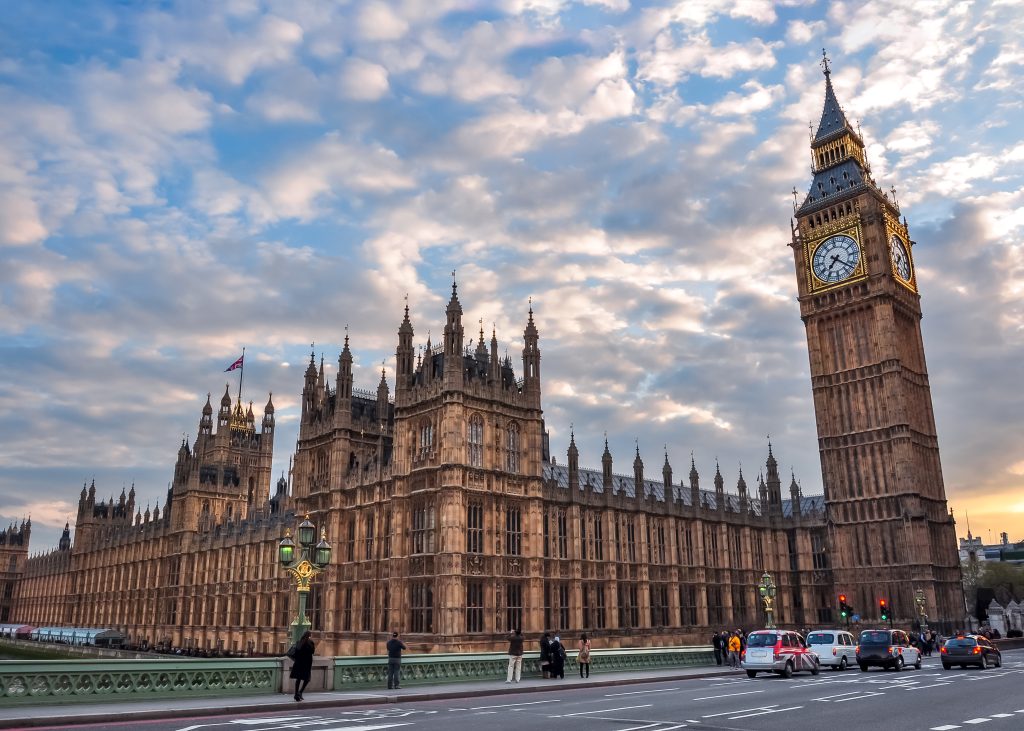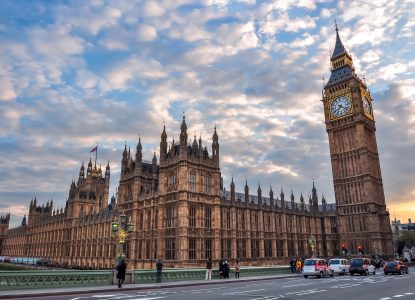By Prof. W. Cole Durham, Jr. – President of the G20 Interfaith Forum Association and Founding Director, International Center for Law and Religion Studies, Brigham Young University
– – –
This blog was initially presented as the keynote address at a session titled “Preventing Violence, Promoting Freedom of Religion or Belief – An Overview,” held on Tuesday, 5th July, 2022 at Portcullis House, Westminster, UK. It was sponsored by The International Center for Law and Religion Studies. The event was hosted by the All-Party Parliamentary Group for the Prevention of Genocide and Crimes Against Humanity, among others, with funding from ICLRS and The Church of Jesus Christ of Latter-day Saints.
Today, I want to advance seven reasons for thinking freedom of religion or belief is foundational: It is historically foundational, philosophically foundational, institutionally foundational and empirically foundational. It is instrumentally foundational, in that it is the best tool we have for forging peace in a highly pluralistic world, and it is intrinsically foundational, because it protects the core of human dignity. Finally, it is foundational in being a critical criterion of justice. Let me provide a thumbnail sketch of each of these points.

Historically
Freedom of religion or belief is the oldest of the internationally protected human rights. Historically, it is the grandparent of many of the other fundamental rights in the modern human rights pantheon. It emerged from the crucible of the wars of religion at the dawn of modernity. At the beginning of the republic in the United States, it was still an experimental principal. No prior society had been explicitly built on the foundation of religious liberty. Though no longer experimental, it remains a paradoxical and counterintuitive right, because it commits those who live by its precepts to recognize the rights of those who adopt different and even radically opposed world views. But it has emerged as the most powerful tool we have for organizing and stabilizing genuinely pluralistic societies. Our other fundamental rights—freedom of expression, freedom of association, freedom from discrimination, and ultimately freedom from want and fear—are ultimately based on this principle. In brief, freedom of religion or belief is historically foundational, and we neglect it at our peril.
Philosophically
The right to freedom of religion or belief is philosophically foundational because it protects the comprehensive belief systems and world views in which our other ideas are rooted and from which they derive their meaning. For much of human history, it was assumed that social peace depended on social homogeneity. This often remains an unstated assumption of security policies, where the assumption is that the phenomenon of violence perpetrated in the name of religion is a consequence of diversity, and that the solution is to coerce conformity. Because religious differences are deep and nonnegotiable, they lead to intractable conflicts that have littered the pages of history. While there is some truth to this account, recent scholarship suggests that this picture overstates the dark side of religion. Close analysis of conflicts that involve religious actors often demonstrates that it is not religion itself that causes conflicts, but a variety of other factors (1). This is not to claim that religion is never responsible for violence and conflict. It is simply a reminder that great care should be taken in attributing blame.
In fact, far from unleashing the destructive impulses of conflicting religions, freedom of religion or belief helps tame the centripetal forces of pluralistic difference. The philosopher John Locke helped us recognize that the real source of violence perpetrated in the name of religion is not religious difference itself, but defensive conduct when conscientious convictions are threatened by efforts to coerce social monism (2). Based on two and a half centuries of evidence, we know that the once experimental social framework derived from Lockean theory is eminently workable, and in fact can support social stability and peace in a much wider range of contexts than Locke himself originally thought. It is not cultural homogeneity that is critical, and not even tolerance as Locke understood it, but a much narrower pluralistic commitment that can be articulated as follows:
What counts is not whether religious people appreciate other beliefs and practices or whether they admit of alternative paths to salvation. What really matters is whether each, on sound internal grounds, supports the public doctrine of the equal inherent dignity and inalienable freedom of all human beings, irrespective of their religion, life stance, or any other differences, and that each reasonably understands or else trusts that others similarly support general freedom of religion or belief.”(3)
Note that in the end, what is really required for social peace is a shared commitment to equal human dignity safeguarded by strong protection of freedom of religion or belief.
Institutionally
Philosophical foundations have led to the emergence of strong institutions that make it possible to say that this freedom is institutionally foundational. It is institutionally foundational because it protects and fosters the institutions that engender the vision, the motivation and moral support that translate religious and moral ideals into personal and communal practice. It often overlaps with other rights, such as freedom of expression, freedom of association, rights to non-discrimination, rights to protection of an intimate or private sphere, and so forth, but its sum is greater than any of these individual parts. After listing fifteen other key social goals, the United Nations Sustainable Development Goal 16 calls for the creation of peace, justice and strong institutions. Institutions not strong enough to sustain freedom of religion or belief will fail in their efforts to meet any of the other sustainable development goals.
Empirically and Instrumentally
This is in no small part because freedom of religion or belief is vital to stabilizing peace in a free world that allows differences of thought, conscience, and religion. Stated differently, freedom of religion or belief is empirically and instrumentally foundational. We now have extensive empirical work demonstrating strong correlations between freedom of religion or belief and countless other social goods such as heightened freedom of expression and non-discrimination, economic freedom, higher per capita gross domestic product, better incomes for women, gender equality, higher literacy rates, better health and education, and many other social goods (4).
Proof of correlation is, of course, not the same as proof of causation. But as the volume of empirical data increases, it is becoming increasingly possible to sort out the myriad factors that point to reciprocal causal streams behind the empirical data. Much work remains to be done, but there is every reason to think that additional empirical work will further reinforce the conclusion that freedom of religion or belief has significant causal influence on bringing about countless other social goods.
This is not surprising. It has long been recognized that religious communities are a tremendous source of social capital. If this resource can be devoted to advancing other goods, in ways that are quite natural for religious communities, and not expended on defending the community from persecution and discrimination, a massive “peace dividend” can be expected.
It is worth noting in this regard that the right to freedom of religion or belief functions as a powerful filtering device. Precisely because it is not an unlimited right, the carefully crafted permissible limitations on religion help societies with the “ambivalence of the sacred” by allowing regulation of the darker side of religion, while protecting its socially beneficial character. It is accordingly a principle of tremendous social leverage. Far from protecting sources of polarization and divisiveness, it holds the key to social stability and harmony by providing the shared assurance that everyone will be secure in following his or her own beliefs.
Intrinsically
Beyond such instrumental value, however, it is important to emphasize that in the end, freedom of religion or belief is foundational because of its profound connection to the core of human dignity. In this regard, it is important to note that dignity is not merely an alternative type of minimalist homogeneity—a convenient conceptual common denominator that can serve as the foundation for modern pluralistic societies. In particular, it is not a social bond that will unravel as a potential unifier when rival camps in modern culture wars attempt to capture the concept and to exploit it in furtherance of their own ends.
Dignity is a rich and generative concept with deep roots in a variety of traditions (5). It is the core concept that helped open the path for productive dialogue at the time of the formulation of the Universal Declaration of Human Rights. Moreover, it is more than a static starting point for moral deductions. It has a generative power in discourse that has the potential to expand vision and raise sights. It has an inherent reciprocity that encourages those on one side of a moral argument to take the dignity of others seriously. Protecting dignity generates gratitude as a social byproduct which translates into stability-reinforcing loyalty.
Conclusion
In conclusion, freedom of religion or belief is foundational in at least seven respects. It is historically, philosophically, institutionally and empirically foundational. Fifth and sixth, it is not only instrumentally, but intrinsically foundational. And finally seventh, it is a vital constituent of just and stable peace in deeply pluralistic societies. In the end, it is vital to remember that a state which fails to implement this great principle cannot claim to be just.
– – –
- See, e.g., Gerald F. Powers, ‘Religion and Peacebuilding.’ in Daniel Philpott and Gerard F. Powers, eds., Strategies of Peace: Transforming Conflict in a Violent World (Oxford: oxford University Press, 2010), at 319-20; Monica Duffy Toft, ‘Religion, Terrorism, and Civil Wars,’ in Timothy Samuel Shah, Alfred Stepan, and Monica Duffy Toft (Oxford: oxford University Press, 2012), 138-42.
- See John Locke, A Letter Concerning Toleration (1689, cited edition: Indianapolis: Bobbs-Merrill, 1955), 55.
- Tore Lindholm, ‘Philosophical and Religious Justifications of Freedom of Religion or Belief,’ in Tore Lindholm, W. Cole Durham, Jr. and Bahia G. Tahzib-Lie (eds.), Facilitating Freedom of Religion or Belief: A Deskbook (Netherlands: Koninklijke Brill NV, 2004), at 46.
- See, e.g., Brian J. Grim and Roger Finke, The Price of Freedom Denied: Religious Persecution and Conflict in the Twenty-First Century (Cambridge: Cambridge University Press, 2011), 215-222.
- See generally Christopher McCrudden, ed., Understanding Human Dignity (Oxford: Published for the British Academy by Oxford University Press. 2013).
– – –
Cole Durham, Jr., is the President of the G20 Interfaith Forum Association, the immediate past President of the International Consortium for Law and Religion Studies(ICLARS), and Susa Young Gates University Professor of Law and Founding Director of the International Center for Law and Religion Studies (ICLRS), at the J. Reuben Clark Law School of Brigham Young University. He is a graduate of Harvard College and Harvard Law School, and is a founding Editor-in-Chief of the Oxford Journal of Law and Religion.


